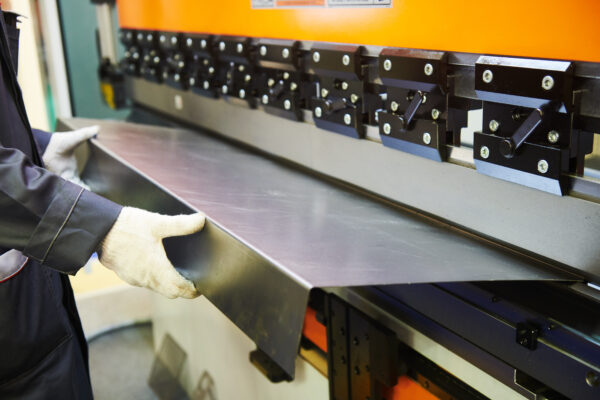Running a metalworking or manufacturing workshop is all about balancing quality, productivity, and efficiency. However, as your business grows, what once seemed like perfectly good equipment can actually start holding you back. For many workshops across Australia, aging or underperforming equipment can become a costly bottleneck. So how do you know when it is time for an upgrade? This month, we explore the key signs that your sheet metal machinery and equipment might be past its prime, what the industrial machinery upgrade process typically involves, and how investing in new machinery can help to future-proof your operations in a competitive market.

1. Your Machine Downtime Is Increasing
One of the most obvious—and frustrating—signs that your machinery is no longer serving you well is increased downtime. If breakdowns and repair calls are becoming a regular part of your work week, your equipment is no longer reliable.
Downtime doesn’t just affect output. It also increases labour costs, delays deliveries, and can start to risk your reputation with clients. In a fast-paced market like Australia’s manufacturing sector, where quick turnaround times are often critical, unreliable machinery can seriously hurt your bottom line.
Tip: Track the number of hours lost to repairs or malfunctions over a 6–12 month period. If it is increasing, it’s time to assess whether repair or replacement is the better long-term investment.
2. Your Production Capacity Can’t Keep Up With Demand
As your business grows, so should your capacity. If you find yourself turning away work or struggling to meet deadlines because your machinery can’t keep up, you have likely outgrown your current setup.
Modern sheet metal machinery, especially CNC-controlled systems, can increase production speed dramatically without compromising on accuracy. Whether you’re working in automotive fabrication, custom architectural components, or general engineering, scaling up your output with newer equipment could open the door to larger contracts and more consistent revenue.
3. You are Spending More on Repairs Than You Would on Financing New Machinery
Let’s be honest—repair costs can add up quickly. If you are constantly sourcing spare parts, paying emergency call-out fees, or experiencing hidden losses from idle labour, it’s likely that you are spending more than you need to.
It may be time to look into investing in new sheet metal machinery, which can sound like a huge financial step, but weighing up what you are spending on keeping your old machinery running against the investment into a new and reliable piece of machinery may just end up benefiting you in the long run. In addition, you can look into financing and leasing options that can help to make upgrading more affordable.
Plus, modern machines often come with warranties, support packages, and predictive maintenance features, giving you peace of mind and lowering your overall maintenance spend.
4. Your Machinery No Longer Meets Industry Standards
With ever-evolving workplace health and safety regulations and customer expectations for precision and consistency, older machines may struggle to comply. In Australia, Safe Work regulations and ISO standards for manufacturing quality have made compliance more critical than ever. Failing to meet safety guidelines could put your employees at risk—and expose your business to liability.
Newer machines are often designed with advanced safety features such as automated shutoffs, light curtains, emergency stops, and user-friendly controls. Upgrading not only protects your team but also shows clients and inspectors that your workshop takes safety seriously.
5. You are Struggling to Find Parts or Technicians for Older Machines
As machines age, the availability of spare parts and trained technicians can become a real issue. If your current equipment is no longer supported by the original manufacturer—or if parts need to be imported with long lead times—it may be time to consider alternatives.
This is particularly relevant for older imported models that are no longer in production. Many workshops experience delays of weeks or even months just waiting for a single part to arrive from overseas. During that time, jobs pile up, clients get frustrated, and cash flow takes a hit.
6. You are Looking to Diversify or Enter New Markets
Expanding into new markets often requires new capabilities. For example, if your workshop currently does basic cutting and folding but you’re looking to offer more intricate custom fabrication, your existing equipment might not be up to the task. Likewise, if you are considering tendering for government or commercial contracts, your workshop must demonstrate compliance, capability, and capacity. Investing in newer machinery may be the strategic step that unlocks new revenue streams.
If your business is looking to diversify or upscale its production capabilities, consider upgrading your fabrication machinery. Updating your equipment can provide you with the ability to enter a new market, or increase your output, helping you to achieve your business goals.
Do You Need New Sheet Metal Machinery?
If your business has outgrown its machinery and you are ready to upgrade, look no further than ACRA Machinery. Backed by 42 years of industry experience, we are here to help with all of your sheet metal machinery needs, including sales, repair, and maintenance.
Get in touch with us by calling 03 9794 6674 or fill out our online contact form and we will get back to you.
